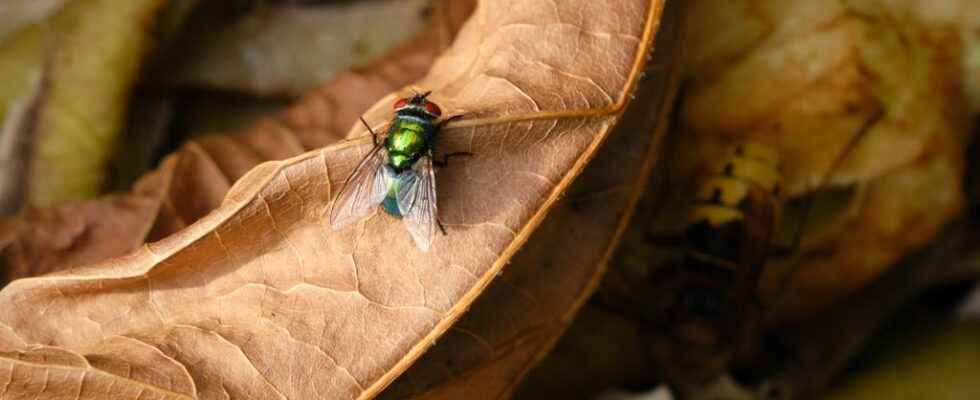According to an American entomologist, large house flies are capable of contaminating our plates with pathogens. Zoom.
Good news: the “fly season” is almost over. With the end of the hot weather, the flies that took pleasure in circling our living rooms, dining rooms and kitchens will (finally) return outside.
And that’s good: because, according to a study conducted by researchers at the University of Massachusetts (in the United States), flies would be able to contaminate our plates in no time.
Indeed: as explained by Pr. John Stoffolano, professor of entomology and principal author of these jobs“we have to pay attention [aux mouches synanthropes] that live among us because they get their nutrients from people and animals that release pathogens in their tears, feces and wounds“.
Flies carry (and disperse) pathogens
In short: throughout the day, synanthropic flies (these are the large house flies that do not bite) feed on excrement, waste, etc. And all this “food” accumulates in the crop of the insect: “it is a place made to store food before it enters the digestive tract where it will be transformed into energy for the fly“explains John Stoffolano.
Yes, but here it is: in addition to its “food”, the fly also carries a certain number of pathogenic agents in its crop. Pathogens that can easily end up on our food if the fly lands on it since the insect regularly regurgitates water on the surfaces where it is found.
Conclusion ? If a fly has landed on your plate of spaghetti, your slice of pizza or your pastry, it is better to avoid tasting it! “Our health depends on paying more attention to those flies that live with us” remarks the specialist.
Subscribe to the Top Santé Newsletter to receive the latest news for free
